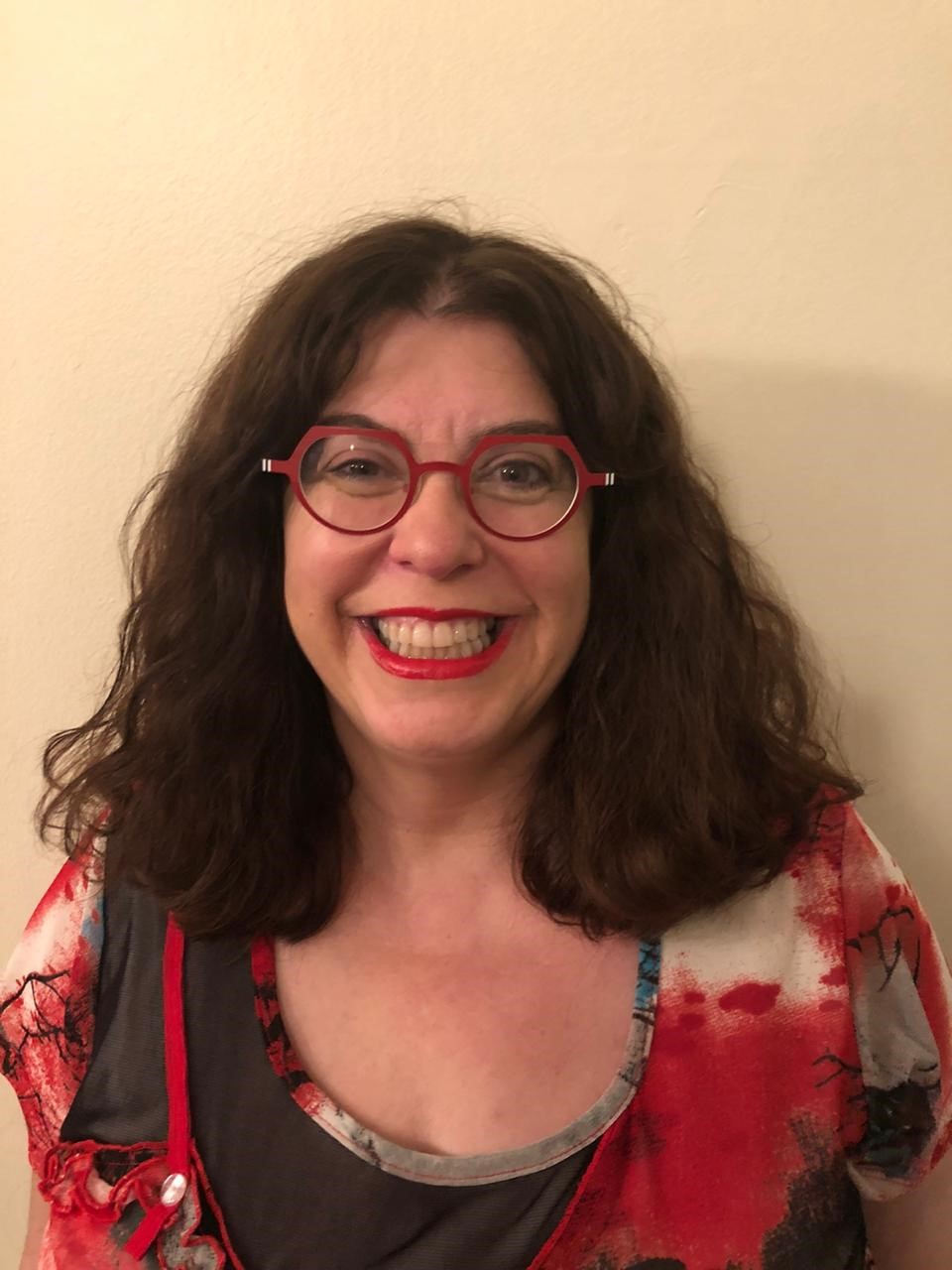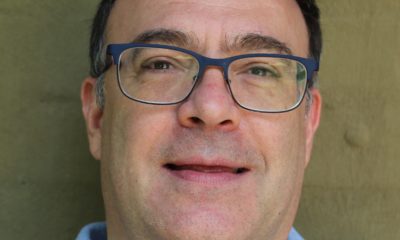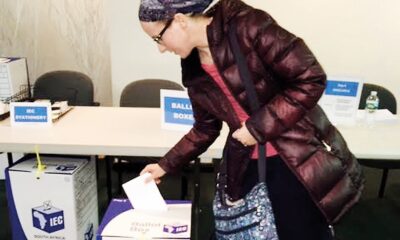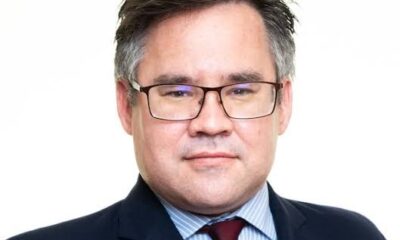
OpEds

I vote for you, SA, not the ruling party
I’m filled with mixed emotions as we head towards the seventh election since the dawn of democracy.
I remember all the times in the past when it felt like this country had reached a point of no return, times from both our apartheid past and our post-apartheid present. Certain dates are seared into our consciousness – 21 March 1960: the Sharpeville massacre; 16 June 1976: the Soweto uprising; and 10 April 1993: Chris Hani’s assassination.
Each of these dates were turning points in South Africa’s history in which the cruelty of the apartheid regime and the motives of the antidemocracy forces within our society were laid bare.
In post-apartheid South Africa, there are events rather than dates that exposed the rot at the heart of the current African National Congress (ANC) government. The Marikana massacre was the first, in which unarmed strikers were mown down by a callous police force. Then, there were the revelations of state capture and the Zondo Commission, televised so we could watch for ourselves the venality of those in government.
The COVID-19 pandemic dealt a further blow to our country and community, and then the Durban riots – the opposite of the Soweto uprising. This wasn’t a liberatory movement confronting a repressive regime, but rather a looting mob, instigated and supported by those with sinister ulterior motives.
Interspersed through these events, however, have been moments of indescribable hope and joy.
The first democratic elections in 1994: I recall with perfect clarity standing in the queue for hours at the Yeoville voting station. Yeoville itself was then a slightly grimy beacon of hope, a non-racial suburb even during apartheid, filled with shuls, clubs, pubs, brothels, and a kosher restaurant.
Voting for the first time in 1994 was a transcendent moment that all subsequent failures of later ANC governments can never take away.
In the years following the first democratic elections, there have been many more times of deep pride and commitment to this fledgling democracy. President Thabo Mbeki’s “I am an African” speech; Rugby World Cup wins in 1995 and 2023; Black Coffee’s Grammy win.
And at a deeper level, I watched my own children get an outstanding education at a Jewish school in South Africa, and a brilliant tertiary education at University of the Witwatersrand where I teach, and where I’ve watched a new generation of “born free” students enter, often from disadvantaged backgrounds, with inspiring, brilliant, enquiring minds.
And so, I’ve always rejected the notion of the “wandering Jew” without judging those who chose to leave but knowing that I’m a South African, committed like all patriots to the well-being of my homeland.
And then another date occurred – a date that will forever be seared into the consciousness of all Jews and all those with an ounce of humanity – 7 October. And amid the worldwide condemnation of the barbaric invasion of Hamas from all progressive, democratic countries, my government released a statement, standing with … Hamas.
We’re all aware of the subsequent statements and actions of the ruling party, including the foreign affairs minister calling Hamas in the immediate aftermath of the massacre. Then the ANC met Hamas at Luthuli House as it called for the removal of the Israeli ambassador, not merely going against the government’s policy of “non-alignment”, but standing happily with the representatives of unashamed rapists, murderers, and kidnappers.
Culminating on 29 December, when the social compact of South African society was ripped apart as the government chose international grandstanding above a genuine attempt to engage in peace-making, knowingly sacrificing its relationship with the South African Jewish community.
Since then, we have seen some horrific antisemitic acts in South Africa, including stripping a sportsman of his captaincy on entirely spurious grounds, and just this week, allowing Ahmed Munzoor Shaik Emam to use Parliament for vile antisemitic rhetoric and incitement, without censure.
At the same time, Justice Minister Ronald Lamola and President Cyril Ramaphosa himself separated out the Jewish community from fellow South Africa citizens in their rhetoric.
Lamola used the language of “othering” on the steps of The Hague, and denied hate crimes against Jews, including the violent assault of a rabbi. And Ramaphosa referred to those who don’t share this country’s moral compass – yes us – in an admittedly disastrous State of the Nation Address. All of this being aided and abetted by a tiny minority of token Jews, seeking their space in the corridors of power.
So where does that leave those, like me, proud South Africans but bitterly disappointed and let down by Ramaphosa’s government?
We need to change our narrative. We now live in a multiparty democracy, and we don’t need to accept the ruling party’s hypocritical foreign policy stance as gospel. Unlike the governments of Presidents Nelson Mandela and Thabo Mbeki, this ANC government is battling to hold on to a 50% majority. Also, its friendship with the enemies of democracy – Iran, Russia, and China – have beclowned its foreign policy image. We’re also not alone.
In addition to opposition parties and a sizeable proportion of Christians and Hindus having no truck with the government’s misguided foreign policy, we’re unfortunately not the only ones Ramaphosa has let down.
Hunger once again stalks our streets and villages, and rape and murder statistics are higher than any war zone. Though this seems like cold comfort, it’s important to recognise that we’re not fighting a credible, morally upstanding government.
Instead, we’re facing a crumbling edifice, so mired in its own internal wrangling and corruption, it has no time for the people of this country. And fight them we will.
We live in a constitutional democracy where we don’t have to be frightened of calling out the government’s manifold failures.
In spite of Lamola’s denialism, we’ll test our antisemitism cases in the courts and hold our government to its constitutional principles. We’ll support the businesses affected by the anti-Jewish boycotts, which seek to hurt Jews and place a foreign conflict above South African jobs.
We’ll continue to call for the release of the hostages and for peace in spite of the ANC government’s amnesia about this key outcome of its International Court of Justice case.
And we’ll continue to hold our heads up as proud South Africans because governments come and go, but the spirit of South Africa and its presence in the beauty of our country; in the beauty of the South African bush; in our sports teams and in our fellow South Africans is undimmed.
We’re the last Jews left in Africa.
We have a magnificent community, envied throughout the world. We’ll not be pushed out of this country without a fight.
So, while we keep an eye on the storm clouds on the horizon and the real threats to our way of life, we’ll also not be bullied out of our pride as South Africans.
- Professor Karen Milner is the national chairperson of the South African Jewish Board of Deputies.











Devora Even-Tov
March 2, 2024 at 2:27 pm
Kol Hakavod